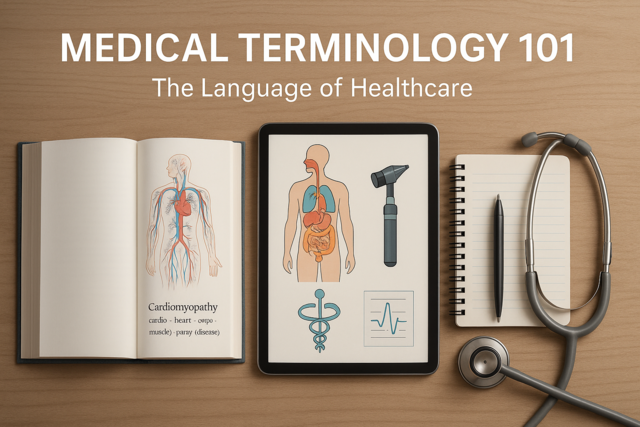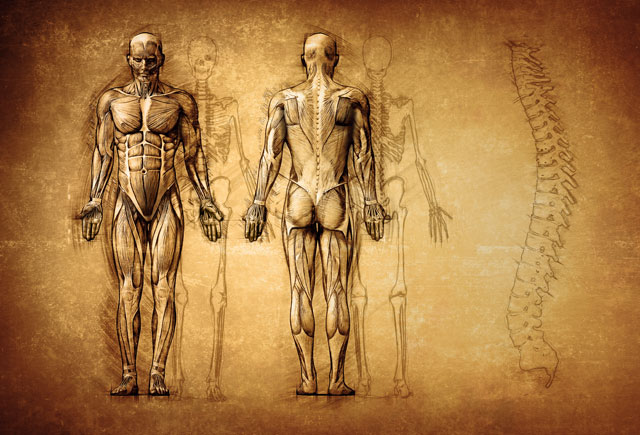With growing numbers of seniors in our aging population, families and extended family members are finding themselves in a position where they're providing for some or all of the care for their senior loved ones.
Understanding basic rights of patients and how such rights apply to the elderly will help you become an advocate for not only elderly patients, but for other family members and friends. In this article, you'll learn what an advocate is, what one does, and why it's important to be an advocate for patient care today.
As an educated advocate, you'll identify and report red flags when it comes to senior care, including elderly abuse and more personal aspects of care, including hygiene. You'll also learn the importance of documents such as advance directives and powers of attorney in order to provide the best in secure, comforting, and effective senior care that maintains their independence and dignity in all areas of their life.
Improving quality of life is just one of the benefits of being an advocate for the elderly. In this article, we'll focus on the definition of an advocate and how being an educated caregiver or patient advocate can help you provide and monitor the best in quality care for your loved ones as well as others in your community.
What Is an Advocate?
At its most basic definition, an advocate is someone who sticks up for someone else. In the medical field, a patient advocate is one who makes sure that the legal and human rights of a patient are understood and upheld. Taking that a step further, a senior advocate is one who makes sure that the needs of seniors are being met in all aspects of their environment.
A patient advocate is often employed by hospitals or nursing homes to act as a bridge for communication between patients, families, and administration. Advocates are not only available for patients, but for their family and their legal representatives.
Basically, an advocate acts as a liaison between hospital staff, hospital systems, and patients and their families. Advocates help provide access to information and address concerns and communications of loved ones regarding senior care. Patient advocates may also be involved in:
-
Billing issues.
-
Patient rights.
-
Physician issues.
-
Issues related to treatment.
-
Scheduling issues.
-
Resolving difficulties, either of the patient or family members.
In caregiving facilities, a patient advocate may help you resolve difficulties, complaints, or other that you may have about your loved one's care or about services provided by the facility.
What Does an Advocate Do?
A senior advocate makes sure that the dignity of seniors is preserved and the quality of life issues such as physical, mental, emotional, and spiritual health and wellness are being addressed in their daily environment. An advocate for seniors will make sure that they have access to adequate nutrition as well as having social interaction and community activities and events.
The focus of an advocate is to provide support, assistance, and encouragement for both the senior and their family. Patient advocates are also available to help preserve the rights of patients who have no family or are unable or hesitant to speak up for themselves.
The patient advocate is always willing to discuss information regarding a hospital or a facility's procedures and policies as well as explaining their rights to patients. Advocates listen to complaints or concerns from the patient and strive to resolve them with staff and administration and to facilitate the best in quality patient-centered care.
Being an Educated Caregiver or Patient Advocate
While patient advocates are often highly trained and experienced professionals in the medical and health field, you may also be an advocate for the elderly patient. After all, you know when something doesn't feel right. If you're concerned about the care Mom or Grandma is receiving at a nursing home, it's your responsibility to mention it. In doing so, you've just become an advocate for the elderly patient as well as other patients within the facility.
Empowering patients, as well as their loved ones, to help take responsibility over their medical care and increase and enhance partnerships with doctors, nurses, and other medical staff will help ensure the best in quality care for seniors. In order to become an educated caregiver, you need to become a knowledgeable and educated consumer.
This doesn't mean that you have to spend hours in school or receive a social sciences degree, but that you need to be aware of basic medical care principles. For example:
-
Do you think Mom is rushed through her doctor's appointments?
-
Are you concerned that Dad has too many prescriptions?
-
Have you noticed that Grandma's skin rash hasn't improved in weeks?
-
Are you worried that Dad's doctor has made a mistake in his care?
If you answered yes to any of these questions, you are already behaving like an advocate for your loved one. An advocate is:
-
Caring and compassionate.
-
Able to communicate.
-
Organized.
-
Able to solve a variety of problems.
-
Able to get along well with a variety of individuals, including patients, other family members, medical staff, and support personnel.
The patient advocate may also help seniors and their family members navigate healthcare insurance problems and patient services. The professional patient advocate may also get involved in mediation, arbitration, and negotiation on behalf of patients when it comes to a financial crisis, maintaining and keeping their jobs, or facilitating access of care in a variety of scenarios.
As an elderly patient advocate, you also need to understand rules and regulations in regard to patient care, know when to speak up and make your voice heard. We will offer a variety of resources and standards of care that are expected in home-based care, assisted living facilities, and nursing home scenarios in regard to caring for the elderly.
Conclusion
Whether you're interested in becoming a professional elderly or geriatric advocate or you merely want to make sure that your parent or grandparent or other family member is well cared for as they age, educate yourself on their medical condition and maintain an open line of communications with their healthcare providers.
Whenever possible, discuss diagnoses, prognosis, and treatment plans with the senior and their care providers to better understand the caregiving process. Being an advocate doesn't mean behaving like a banshee and making unreasonable demands when it comes to care, but you do want to expect, and demand, quality and compassionate care for the elderly.
You can't become a good advocate for the elderly if you don't understand the basic Patient's Bill of Rights. These are rights that belong to, and describe every patient, from children to seniors, regardless of where that care is being offered.
Quality of Life Issues
Introduction
Senior advocacy promotes the dignity, health, and quality of life of seniors by providing a number of services and laws. These laws ensure that seniors have access to services that promote their independence, physical and mental health, and wellness. While every human deserves certain basic rights such as access to shelter, food, and medical care, other considerations are sometimes not so black and white. This article will introduce quality of life issues that should be at the top of the list for any senior advocate.
The number of individuals over 60 years of age is expected to explode in the next decade. Throughout the United States, the population of seniors over 75 years of age is expected to increase by nearly 25%, and those who ultimately reach 85 years or older in the next two decades is expected to increase by over 50%. While many of these individuals may be placed in long-term care residences, others are choosing to age at home.
Regardless of where they live, these seniors may require specialized support systems in order to maintain their quality of life and independence as long as possible.
What Is Quality of Life?
Quality of life can be measured based on the physical, mental, emotional health and wellness of any individual. When it comes to seniors, quality of life issues are extremely important not only to them but to their loved ones and caregivers. Are their physical needs being taking care of? Are they treated with compassion and dignity even if they need help with toileting or grooming?
Do seniors have appropriate access to mental health caregivers, especially if they've been diagnosed with any form of dementia? Is someone watching out for the overall health and wellness of our seniors? Do they have access to wellness checks and preventive medical care? These are just some of the questions involved regarding quality of life issues.
Some seniors are perfectly happy and content to live in a nursing home facility while others become severely depressed and isolated, believing that their loved ones have literally abandoned them. For such extremes, quality of life may be measured differently.
Let's put it this way. How would you rate your quality of life or daily living environment if every morning you woke up wondering how you were going to pay for the prescription medication your doctor has prescribed for your heart? How would you rate your quality of life if your cupboards and refrigerator are empty, you're hungry, but you don't have enough money for groceries, let alone transportation to and from the grocery store?
Many seniors face these issues on a daily basis. Stress, anxiety, depression, and isolation afflict many seniors regardless of their living environment. Such anxiety decreases their quality of life.
If you don't have access to social interaction, community events, food, adequate shelter, or transportation to and from your doctor's office, your quality of life, overall physical and mental health, and your involvement in society decreases. As such, quality of life also decreases. Senior advocacy for the elderly patient strives to ensure that such situations are prevented.
Physical and Mental Health, and Wellness
Advocacy means paying attention to the physical, mental, emotional, spiritual health and wellness of seniors. This can be facilitated in home-based or nursing home environments by communicating with seniors and finding out how they feel about these things.
For example, does Mom want to go to church every Sunday but has no way to get there? Has Dad been feeling sick recently, but isn't receiving adequate attention by his medical care provider? A senior advocate makes sure that such questions or issues regarding the overall health of every senior are addressed.
Senior advocacy extends way beyond identifying situations of abuse or neglect. Lack of respect, poor attitudes, and neglecting to assist seniors with basic daily needs are also the focus of advocacy for the elderly patient. It can be said that manners, courtesy, and compassion are the foundation of senior advocacy regardless of situation, age, or circumstance.
Ensuring that seniors have the opportunity for social and intellectual engagement and involvement, as well as activities with others can improve their quality of life and help prevent feelings of depression and isolation caused by loneliness or neglect.
Studies have shown that there is a direct relation between psychosocial health and physical conditions and mental health in seniors. Depression and loneliness may place seniors at an increased risk for physical conditions as well as decreased independence.
Social support has been directly related to quality of life and health issues that includes companionship, communication, mutual respect, and emotional support. Encouraging physical activity and interaction and communication with others is often neglected in seniors living in home-based environments, especially those living in rural communities where homes may be isolated from neighbors or town centers by miles.
Access to Food, Social Interaction, Community Events, and Activities
A senior advocate can ensure that seniors in both home-based and nursing home scenarios have access to the basic needs that any other individual expects and deserves. While some seniors prefer not to get engaged in community events and activities, most do like to visit with friends, get outdoors, and enjoy the activities they used to enjoy. These considerations should always be uppermost in the mind of an elderly patient advocate.
Seniors should also have adequate access to at least one or two hot meals a day, provided either by the assisted living or nursing home residence, or through community services that ensure adequate nutrition for community seniors. Advocacy groups, churches, and concerned caregivers advocate for seniors when they make sure that no one in their community does without.
Chronic or Terminal Illness
A diagnosis of a chronic or terminal illness also initiates a variety of quality of life issues. Society is often divided between granting the last wishes of a terminally ill individual and the desire to preserve life. Dignity issues are of primary importance to advocates.
Caring for a chronically ill or terminally ill patient in a home-based or nursing home scenario may require extremely personal care for that individual. Toileting needs, visual inspection of the skin, feeding, and pain management are just a few of the concerns and challenges that face caregivers of such patients.
Respecting a patient's wishes is not always easy, especially if that individual is hesitant to accept certain aspects of care. Dying with dignity is an issue that is often argued about, not only among family members, but also between family members and medical providers.
An elderly patient has the right to refuse treatment. Whenever possible, senior care advocates should discuss pain management and comfort measures with that individual or their family members to ensure that the wishes and desires of the patient are followed.
Case Study:
Mom has been diagnosed with terminal lung cancer and is living at home. Unfortunately, she's no longer able to care for herself and requires support from family members for feeding, bathing, and toileting. It's growing increasingly difficult for the family members to adequately provide for her. She's in pain but is still quite vocal against being placed in a nursing home.
Family members discuss the situation. One sister, who lives closest to Mom and is the primary care provider, insists that Mom be placed in a nursing home because she is unable to provide the nearly round the clock care that Mom now needs. Her brothers, who live out of state, insist that Mom's wishes to remain home be respected. The daughter, who has power of attorney, decides to place Mom in a nursing home and asks them to do everything possible to prolong her Mom's life, including a feeding tube for nutrition and continued medications for her cancer, even though they are no longer effective.
What quality of care issues, if any, do you see in this situation? As you can imagine, the question regarding quality of life for chronically ill or terminally ill patients is not always easy to define.
Conclusion
What one person deems as important and essential for quality of life is not necessarily the same as what someone else might believe. However, dignity, respect, and access to basic life necessities are essential in meeting standards for quality of care, ensuring independence, and quality of life for seniors. Quality of life issues also mean providing seniors with safe living environments and living spaces.






























